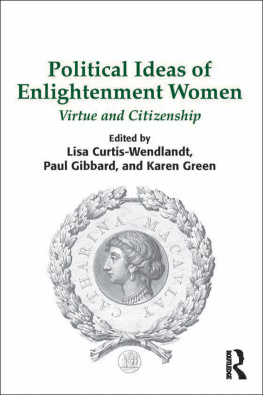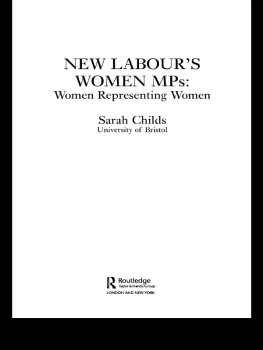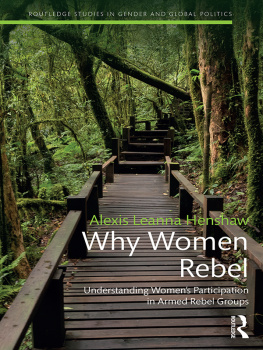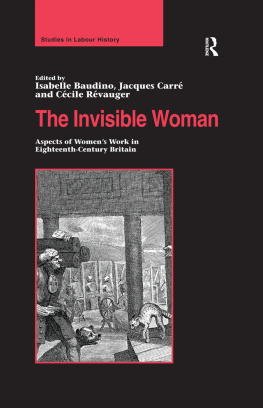ORGANISING WOMENS PROTEST
NORDIC INSTITUTE OF ASIAN STUDIES
Recent Monographs
63. SURVIVAL AND PROFIT IN RURAL JAVA
Sven Cederroth
64. THE STATE AND ITS ENEMIES IN PAPUA NEW GUINEA
Alexander Wanek
65. MISSION AND TAMIL SOCIETY
Henriette Bugge
66. FOLK TALES FROM KAMMU (VOLUME 5)
Kristina Lindell. Jan-jvind Swahn and Damrong Tayanin
67. ISLAM AND POLITICS IN AFGHANISTAN
Asta Olesen
68. EXEMPLARY CENTRE, ADMINISTRATIVE PERIPHERY
Hans Antlv
69. FISHING VILLAGES IN TOKUGAWA JAPAN
Arne Kalland
70. THE HONG MERCHANTS OF CANTON
Weng Eang Cheong
71. ASIAN ENTREPRENEURIAL MINORITIES
Christine Dobbin
72. ORGANISING WOMENS PROTEST
Eldrid Mageli
73. THE ORAL TRADITION OF YANGZHOU STORYTELLING
Vibeke Brdahl
74. ACCEPTING POPULATION CONTROL
Cecilia Nathansen Milwertz
75. MANAGING MARITAL DISPUTES IN MALAYSIA
Sharifah Zaleha Syed Hassan and Sven Cederroth
ORGANISING WOMENS PROTEST
A Study in Political Styles in Two South Indian Activist Groups
Eldrid Mageli
Nordic Institute of Asian Studies
Monograph Series, No. 72
First published in 1997
by Curzon Press
Published 2013 by Routledge
2 Park Square, Milton Park, Abingdon, Oxon OX14 4RN
711 Third Avenue, New York, NY, 10017, USA
Routledge is an imprint of the Taylor & Francis Group, an informa business
Typesetting by the Nordic Institute of Asian Studies
Eldrid Mageli 1997
British Library Catalogue in Publication Data
A CIP catalogue record for this book
is available from the British Library
Library of Congress in Publication Data
A catalog record for this book has been requested
ISBN 13: 978-0-700-70431-6 (hbk)
ISBN 13: 978-0-700-70440-8 (pbk)
Contents
This study was originally written as a thesis for a masters degree in history at the University of Oslo in 1993. The thesis was based in part on six months fieldwork in Madras, Tamil Nadu, in 1991/92. The present work is supplemented by findings from a two-week visit to Madras in December 1994. The study explores the establishment of two womens organisations and some of their activities. The organisations were called the Pennurimai Iyakkam (Womens Rights Movement, hereafter the PI) and the Joint Action Council for Women (hereafter the JACW). The PI and the JACW came into being in 1979 and 1982 respectively and at the time of fieldwork were still active.
This is a study of leadership. I initially approached this study due to a curiosity about the existence of an Indian womens movement as such. Culturally and materially, there appeared to be a wide gap between the sophisticated and well-educated women activists and the mass of ordinary women in Madras. I wanted to investigate how the activists managed to pursue their organising efforts in a culture which, in the eyes of Westerners, tended to restrict womens freedom severely. How did the activists relate to their targets, their less fortunate sisters whose situation they sought to improve? In other words, how did the leaders of the PI and the JACW perceive their roles as spokeswomen for gender equality? In the course of this study, then, my intention is to indicate how some Indian women activists in one of Indias largest cities have attempted to effect social changes in a situation where large numbers of women suffer from poverty and marked dependency on males.
The present work would not have been possible without the assistance and extensive co-operation from several individuals and institutions. I want to thank the Norwegian Research Council (NFR) for generous grants during two and a half years, which allowed me to spend half a year in Madras as well as to prepare fieldwork in Norway and to do the subsequent writing-up. I also want to thank the Ryoichi Sasakawa Young Leaders Fellowship Fund for a grant which gave me the opportunity to revise the thesis for publication, and which enabled me to make an extra trip to Madras in 1994.
I am extremely grateful to all informants and friends in Madras, in both the PI and the JACW as well as others, who received me so well and generously gave me their time. They patiently answered all my questions, some of which must have sounded strange and irrelevant to them. I cannot name everyone I am indebted to, but I want to thank Ms Nel Renooy, Dr Padmini Swaminathan, Ms V. Geetha, Dr P. Jagadeesan, Dr Vasanthi Sankaranarayanan, Ms Kalavathi (Karl), Dr Shankuntala Balaraman and Dr V. Padma (Mangai) in particular, for showing so much interest in this work and kindly assisting me in practical and scientific matters. Padmini Swaminathan andV. Geethas help in the initial period in Madras proved crucial for my quickly becoming familiar with the womens public sphere in the city. Mangai did a solid job in supervising the translation of the PIs publications. Nel Renooy taught me much about setting up a household the Indian way. Thanks go also to Gita and Helmut Wolf for their kind hospitality.
My supervisor Dr Pamela G. Price at the University of Oslo deserves special thanks. Pamela has throughout this period constantly given me her encouragement and support. She has patiently read through all my drafts of various quality, and always been willing to share with me her knowledge of Indian culture. I feel privileged indeed to have benefited from her kind assistance.
Finally, I must thank my family for their support. I am grateful to Audun for his never-ceasing optimistic attitude to my work, even at times when I myself did not believe I would ever pull through. It was a great inspiration to have him and our daughter Ingvild one year old at the time around in India, and of course an experience for all three of us to live in Madras.
Eldrid Mageli
Abbreviations and Acronyms
ADMK | The Annadurai DMK, political party formed by MGR in 1972. Its full name is AIADMK (All-India Anna DMK), but ADMK is generally used. |
BAI | Builders Association of India |
CCRD | Centre for Counselling, Research and Development, initiated by the JACW |
CHAD | Community, Health and Development |
CODIAC | Community Development and Action Service |
DMK | The Dravida Munnetra Kazhagam Tamil cultural nationalist party, which captured state power in Tamil Nadu in 1967 |
DWA | The Democratic Womens Association, affiliated to the Communist Party of India |
JACW | The Joint Action Council for Women |
MATCH | Canadian funding agency |
MGR | M.G. Ramachandran, Tamil Nadus chief minister from 1977 to 1987 |
MIDS | Madras Institute of Development Studies |
NORAD | Norwegian Agency for Aid and Development |
NTR | N. T. Rama Rao, chief minister in Andhra Pradesh from 1983 to 1989 and again from 1994 to his death in 1996 |







